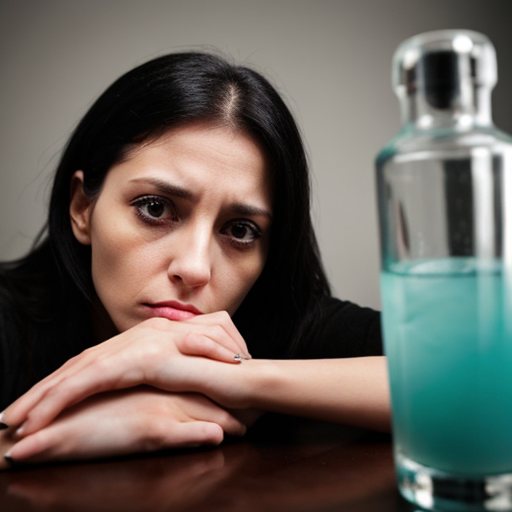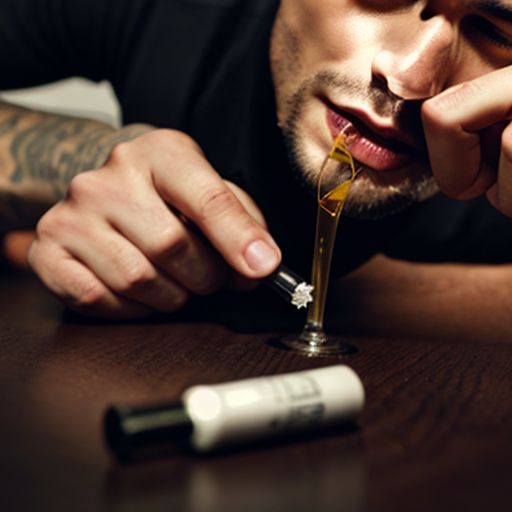Do you have a loved one who always seems to have a steady supply of drugs despite saying they’re broke? Welcome to the world of addiction, where driven by a strong compulsion, they must get their substance of dependence at ANY cost.
You’ll often hear things like “I can stop anytime”, and “I’m not as bad as others.” But don’t worry, with some insight and skepticism, you can spot these common excuses for drug money and help your loved one recover.
Addiction is complex, and people will do a lot to get their next fix, spending money on drugs and alcohol at the expense of essentials like food and shelter. They’ll starve, steal, lie, deny, destroy their job, and betray a family member
It’s important to know the excuses addicts use to hide their actions because by being aware and challenging these excuses, you can uncover the truth and support your loved one’s recovery.

Denying the Addiction: “I Can Stop Anytime”
Many addicts say they can stop using drugs or alcohol anytime. Some geBut, this ignores the deep effects of addiction on their lives. They think they can quit by themselves, which isn’t true.
“I need the money for just this time, I’m really stressed right now and I will stop once I’m out of it”
Addiction changes the brain, making it hard to stop. People in denial haven’t started to think about their addiction or its effects. They keep using and blame others, avoiding responsibility.
Before we go further into these excuses it’ll help to take a quick look at the 4 C’s of addiction and go from there. The more you read, the more you’ll see these are not just excuses, they genuinely believe them.
Overcoming the Denial
Getting past denial is key to recovery. Talking to an addict can help them see the problem. Family and group intervention, along with sponsorships, are vital in treatment.
“I can stop anytime I want.” This common phrase shows denial, missing the real challenges of addiction and the need for help.
Thinking you can just stop using drugs or alcohol anytime is a big mistake. Beating addiction needs a full plan that looks at the reality behind it. By facing the truth, addicts can start on the path to a life without addiction.
“I’m Not as Bad as Those Other Addicts”
It’s easy for an addict to downplay their substance abuse. You might think someone else has it worse, right? This way, you avoid taking the blame for your addiction’s harm.
Maybe you’ve said, “I’m not as bad as those junkies on the street” or “At least I can still work.” This thinking makes you and others think your addiction isn’t a big deal. But addiction is a serious disease that doesn’t care about how you look or what you do.
Any level of substance abuse can get worse. Addiction changes your brain, making it hard to stop using drugs or alcohol alone. Saying you’re “not as bad” as others is a way to excuse your actions as a user and avoid getting help.
“Addiction is a disease of the brain, not a character flaw. Stop judging and start helping.”
To start healing, you must face the truth about your addiction, no matter how it compares to others. With support and treatment, you can beat your addiction and take back your life. Don’t let false comparisons stop you from moving forward.
Autonomy as an Excuse: “It’s My Life, I Can Do What I Want”
When addicts face the consequences of their actions, they might say their drug use is a personal choice. They claim their right to control their lives. But this ignores the harm addiction causes to the addict, their health, their loved ones, and society.
Addiction can lead to risky and illegal behaviors. Addicts might try to justify their actions by offering justifications for illicit funds or rationales for narcotics proceeds. But these assertions of personal freedom are just a way to keep the addiction going.
Many addicts believe their loved ones are being unfair, overreacting, and controlling. This shows how addiction can control the brain.
“I can do what I want with my life. It’s my choice to use drugs, it’s my body.” Especially if they are an adult
This one isn’t about just money but their desire to continue without any interference.
Understanding these excuses for drug money and justifications for illicit funds helps. It’s a step towards helping them to recover.
Excuses for Drug Money: “I Need Drugs/Alcohol to Cope”
Many people turn to drugs or alcohol when they have a rough patch and never stop as they become dependent on it. They say they need drugs or alcohol to cope with stress, trauma, or other issues. But this only makes things worse and keeps the addiction going.
Substances might make you feel better for a little while. But they don’t fix the real problems. Using excuses for drug money or justifications for narcotics proceeds to cope often makes things worse. This is true for trauma, anxiety, or depression.

The Illusion of Self-Medication
Addicts might say they use substances to deal with life’s tough times. But this overlooks how complex addiction is. Drinks, prescription drugs, and other substances might seem to help at first. But they truly make the problems worse.
- Alcohol is often used to self-medicate because it’s easy to get.
- Prescription drugs like opioids, ADHD meds, and anti-anxiety meds are also used to cope with stress or trauma.
- Recreational drugs like marijuana, cocaine, and amphetamines help some people deal with their feelings and memories.
- Some people eat more than they should as a way to cope with stress or sadness.
- Nicotine in cigarettes and other tobacco products can help people focus. But it can make ADHD symptoms worse and make quitting harder.
The idea that substances can fix deep problems is a trap that keeps addiction going. It leads to more excuses for drug money and justifications for narcotics proceeds. It’s important to see this for what it is to help the addict find better ways to cope with help from professionals.
“Addiction is a disease, and recovery is a process. With the right support and treatment, individuals can break free from the cycle of substance abuse and find healthier ways to cope with life’s challenges.”

Finally,
Addiction often leads people to make excuses to get money for drugs or liquor. It’s key to know and stop accepting excuses at face value. This helps spot and tackle the real issue of addiction.
Being alert and taking steps to prevent this is vital. Watch for odd money dealings, question where the money comes from, and use strict checks. This helps fight the big problems of addiction and crime linked to drugs.
The first step to getting better is seeing through these excuses and getting them help. They are rehabilitation and detox programs to help them get clean and some skills they need post-detox and support groups to stay clean. Hopefully, with these tips, you can help that person in your life.


